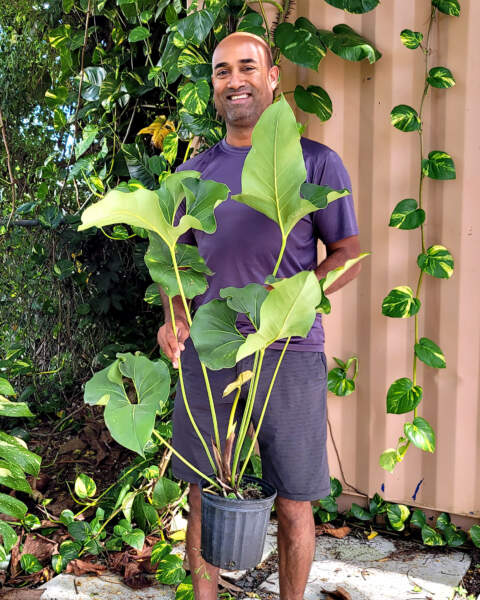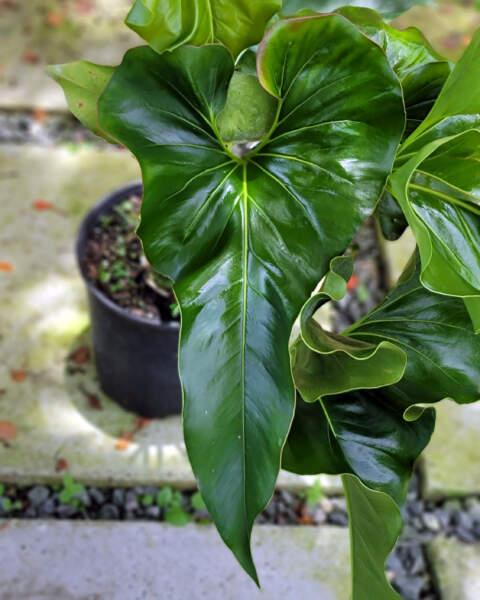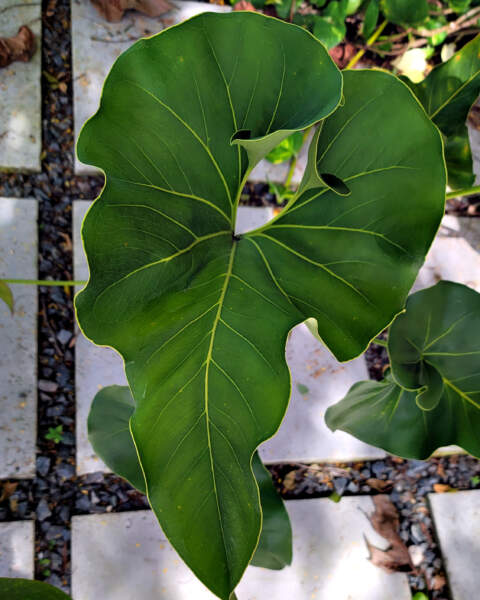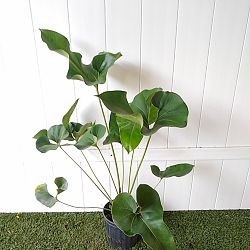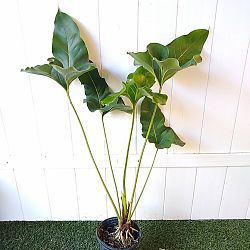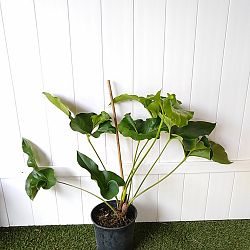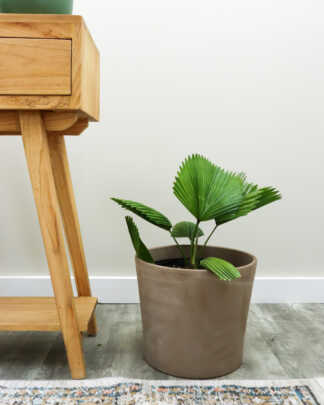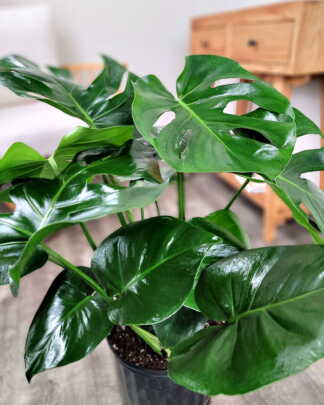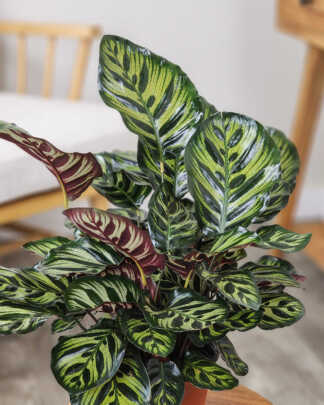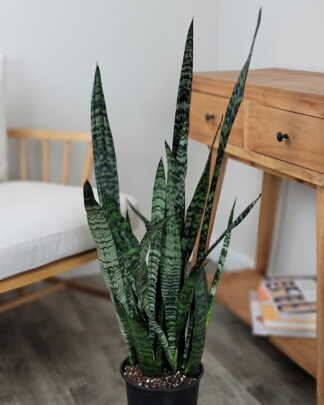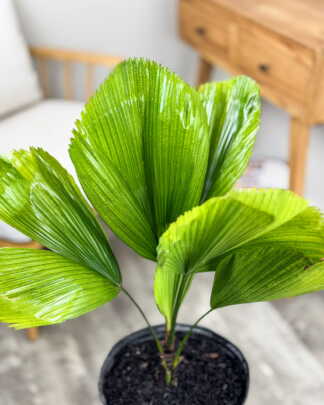Description
This Anthurium is a Treat for all your Senses
The Anthurium brownii is a relatively low-maintenance plant, making it suitable for both experienced gardeners and beginners. With its lush foliage and eye-catching presence, this tropical gem is sure to become the centerpiece of your indoor jungle. This tropical beauty features stunning dark green leaves with prominent white veins, along with a velvety texture that adds a touch of luxury to any indoor space.
Caring for your Anthurium brownii
Caring for an Anthurium brownii, also known as the Velvet Cardboard Anthurium, requires attention to its unique growing conditions, watering routine, lighting, temperature, humidity, and occasional fertilization.
Light
The Anthurium brownii thrives in bright, indirect light. Place it near a window with filtered sunlight or in a well-lit area of your home. Avoid exposing the plant to direct sunlight, as it can scorch the leaves. If the available light is insufficient, supplement it with artificial grow lights placed a few feet above the plant.
Temperature
Maintain a consistent temperature range of 65°F to 80°F (18°C to 27°C) for your Anthurium brownii. Avoid exposing the plant to temperature extremes, drafts, or sudden temperature fluctuations. Protect it from cold drafts, and keep it away from air conditioning vents or windows during the winter months.
Water
Proper watering is crucial for the health of your Anthurium brownii. Water the plant when the top inch (2.5 cm) of the soil feels dry. Aim for a consistent level of moisture, but avoid overwatering, as it can lead to root rot. Ensure that the pot has good drainage to prevent waterlogging. During the winter months or periods of lower growth, reduce watering frequency while still ensuring the soil doesn’t completely dry out.
Humidity
Anthurium brownii thrives in moderate to high humidity levels. To provide adequate humidity, mist the leaves regularly or place the pot on a tray filled with water and pebbles. This helps create a humid microclimate around the plant. Consider using a room humidifier if the air in your home is particularly dry.
Soil
Use a well-draining potting mix suitable for tropical plants. A mixture of peat moss, orchid bark, and perlite or a commercial potting mix for Anthuriums can work well. Ensure the pot has drainage holes to prevent waterlogging, as overly saturated soil can lead to root rot.
Fertilization
During the growing season, which typically occurs in spring and summer, feed your Anthurium brownii with a balanced liquid fertilizer every four to six weeks. Dilute the fertilizer to half or a quarter of the recommended strength to avoid overfertilization. Reduce or cease fertilization during winter or when the plant is in a dormant phase. Always follow the instructions on the fertilizer packaging.
Pruning
Pruning helps maintain the shape and health of your Anthurium brownii. Remove any dead or yellowing leaves regularly. If the plant becomes leggy or sparse, you can trim back the stems to promote bushier growth. Sterilize your pruning shears before use to minimize the risk of spreading diseases.
Propagation
Anthurium brownii can be propagated through division or stem cuttings. Division involves carefully separating the plant into smaller sections, ensuring that each section has healthy roots and leaves. Stem cuttings can be taken from healthy stems with multiple leaves and aerial roots. Plant the cuttings in a well-draining medium and provide high humidity to encourage root development.
Pests and Diseases
Anthurium brownii is generally resistant to pests. However, occasional pests such as aphids, mealybugs, or spider mites can infest the plant. Regularly inspect the leaves and stems for any signs of pests, and promptly treat them with an appropriate insecticide

